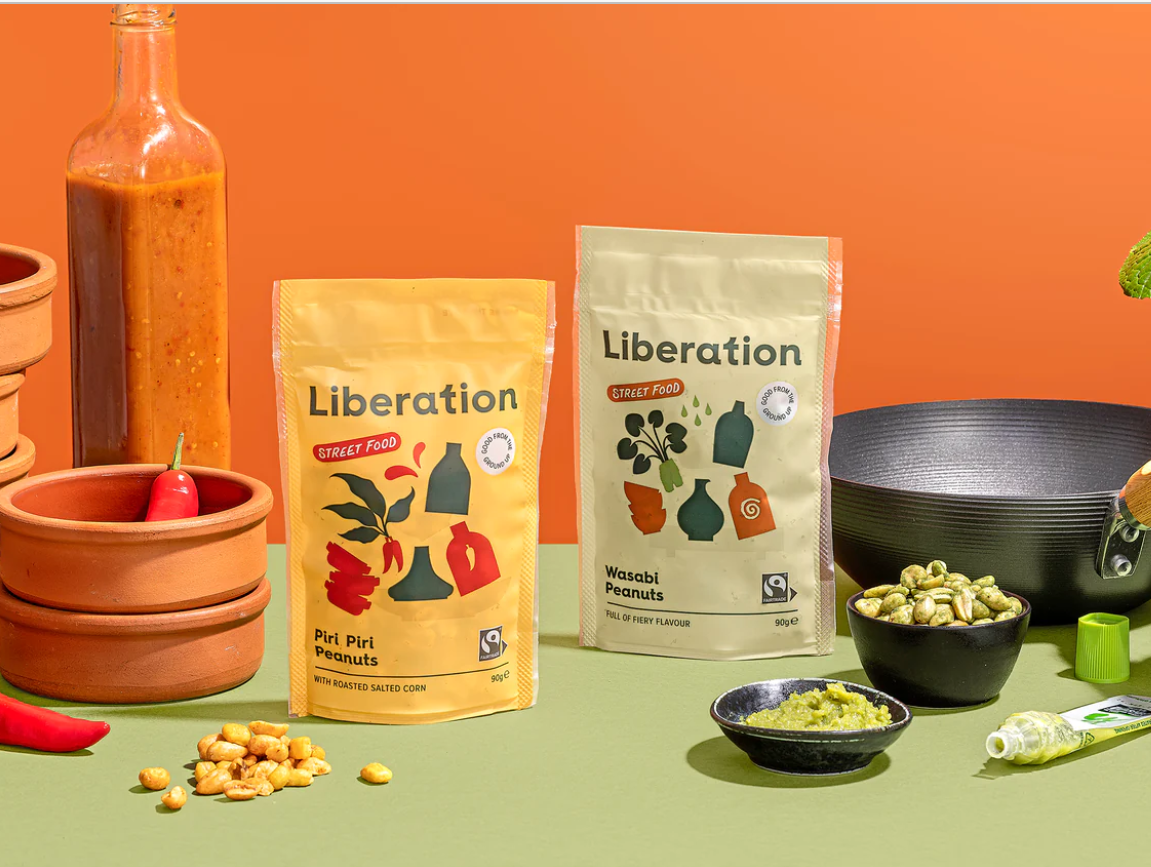“We want to connect consumers with the farmer directly.”
Back in May, we announced that Liberation has joined us as an Ethical Partner. In conventional trade, supply chains are opaque, and the farmers and producers are hidden from view, but Liberation is proving that there is a better way of doing profitable business. We sat down with their Managing Director Dan, to do a deep dive into Liberation’s work, and the smallholder farmers at the heart of their mission.
We are set up to make sure that our community of interest – so small holder famers – realise a fair value for their work. We want to connect consumers with the farmers directly.
I believe that everyone should buy and sell on ethical and fairtrade terms. We need to support smallholders so they can support their communities - biodiverse, small-scale farmers using regenerative farming models.
Liberation have been selling nuts and nut butters since 2007 and are a proud Fairtrade Certified business.
The Fairtrade certification scheme ensures that the cooperatives get full and fair value. They get a fairtrade minimum price – so we pay at or above the market rate, and we collect and pay a fairtrade premium. We are also working towards B Corp certification – it’s almost fairtrade plus.
Small holders supplying Liberation don’t simply sell their produce – they are involved in the business’s decision-making processes and share in the rewards.
We are farmer owned, and we try and do business differently. During Covid, we were able to stay in supply even when many other businesses struggled to function and ship – because our value chains are horizontal, and we make decisions about where the margins will sit collaboratively. When Liberation is in profit, it’s able to provide dividends to shareholders – the lion’s share goes to farmers as they own 50 + 1 of the business.
Climate change is impacting farmers around the world, and whereas conventional trade system can exacerbate the problem, Liberation’s ethical model helps provide some solutions.
In Kerela, monsoon season mudslides wiped out 10% of cashew trees, tea, coffee, and peppercorn crops. Every single co-operative talks about unpredictable weather - rains at the wrong time, drought – it's on everybody’s mind. Some groups can set a calendar by the rains, but that’s no longer the case.
What we are ideally set up to do is switch out to alternative commodities when the crops we usually buy fail. When rain comes at wrong time or there are high winds in the rainforest in Bolivia, and all the Brazil nut trees loose blossom and there is no crop, we want to buy alternative crops from those groups such as acai. We also helping cooperatives to add value to their products, such as in years when there’s a glut of Brazil nuts, we want them to diversify into nut oils.
Large conglomerates dominate agriculture, but Liberation show how cooperatives are the way forward.
I think they [large conglomerates] should go away! It doesn’t work. I’ve seen firsthand the challenges of peanut farms in Nicaragua who grow one single crop – sandstorms, erosion, monocropping – monocrop, conglomerate farms are hugely damaging to the land.
Amidst a climate of big businesses greenwashing their environmental impact, Liberation closely tracks their impact on people and the planet, and are working to prove the positive impacts of their produce:
Nuts are a low impact commodity – nut producing farmland acts as a carbon sink but it’s hard to track as this is additional work for co-operatives. We are looking at a partnership with universities asking MA students to create and prove a model we can use to measure the carbon sink aspect of our work. The idea would be to have someone out in Kerela, India – they have 200 crops, and many trees around the farm and so draw in huge amounts of carbon – we know it’s happening, but we need to prove the data. We could then roll the model out in Malawi, where they are moving to macadamia agroforestry away from farming corn and tobacco, to intercropping with macadamia which acts as a carbon sink and supports soil quality as well as providing a year-round income generation.
Liberation are generously supporting this year’s Ethical Christmas Raffle by offering a £75 voucher as a prize - and tickets are available now!

